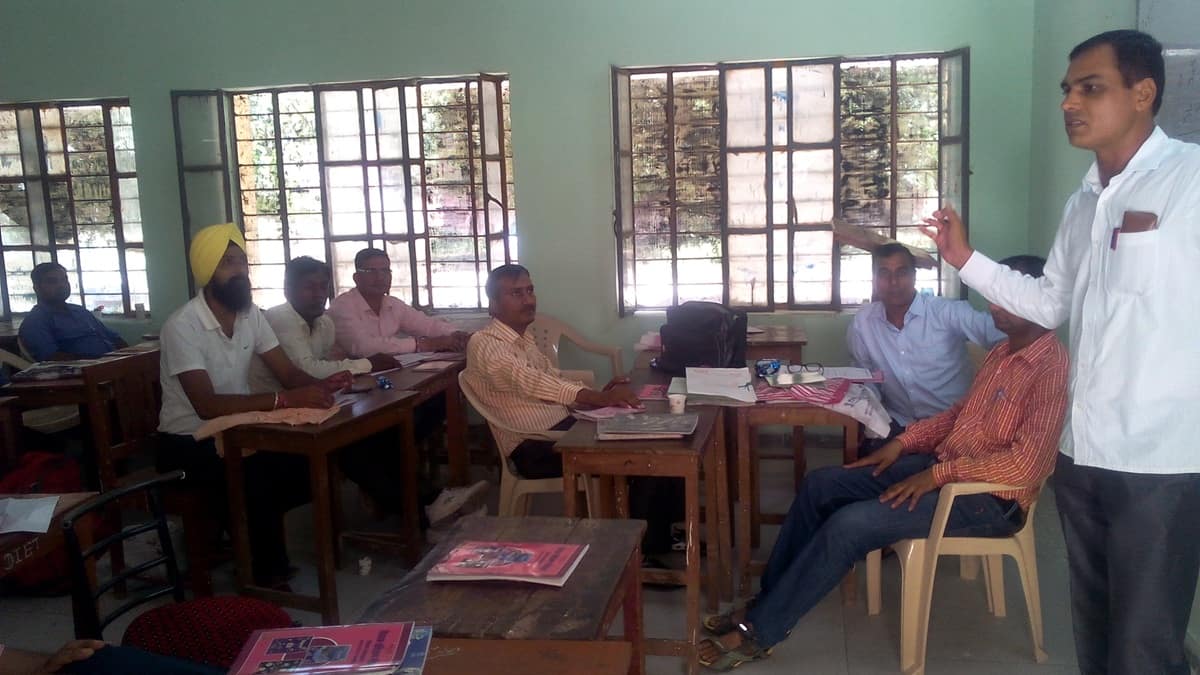NTET 2025 registration ends today for AYUSH teacher appointment
Vagisha Kaushik | June 23, 2025 | 09:53 AM IST | 3 mins read
NTET 2025 fee payment facility will be available till June 24, application correction form will open on June 25. Subject-wise syllabus here.

The National Testing Agency (NTA) will close today the registration window for the National Teachers Eligibility Test (NTET) 2025 for postgraduates in AYUSH aspiring to become teachers. Candidates can submit the application form online on the official website, exams.nta.ac.in/NTET. The last date to make fee payment is June 24 till 11:50 pm.
As per the NTET 2025 schedule, registered candidates will get the opportunity to make corrections in their application form between June 25 and 27. The exam will be held on July 17 as a computer-based test, on behalf of the Ministry of Ayurveda, Yoga and Naturopathy, Unani, Siddhi, and Homoeopathy (AYUSH), National Commission for Indian System of Medicine (NCISM), and National Commission for Homoeopathy (NCH).
Applicants belonging to the general category will be required to pay a registration fee of Rs 4,000 while those from general -Economically Weaker Sections (GEN-EWS) and Other Backward Classes (OBC) will have to pay Rs 3,500. The application fee for Scheduled Caste (SC), Scheduled Tribe (ST), Persons with Disabilities (PwD), Persons with Benchmark Disabilities (PwBD), and third gender candidates is Rs 3,000.
How to apply for NTET June 2025?
Here are basic steps to fill NTET 2025 application form:
- Go to the official website, exams.nta.ac.in/NTET
- Click on the link to register/login
- Read the instructions and click on the button to proceed
- Fill the application form and submit choices of city
- Upload the documents and pay application fee
- Save the details and take a screenshot of the confirmation page
NTET 2025 syllabus
The subject-wise NTET syllabus 2025 is given below.
UNITS | Contents |
Teaching & Training | • Teaching: Concept, Objectives, Levels of teaching (Memory, Understanding, Reflective), Characteristics, and basic requirements. • Teaching methods, new methods of teaching (approach). • Utilization of basic teaching and basic skills of teaching. • Understanding Learner’s characteristics: Characteristics of adolescent and adult learners (Academic, Social, Emotional, and Cognitive), Individual differences. • Factors affecting teaching: Teacher, Learner, Support material, Instructional facilities, Learning environment, Institution. • Methods of clinical teaching/bedside teaching. • Learning styles – VARK (Visual, Aural/Auditory, Reading/Writing, Kinesthetic). |
Communication | • Communication: Meaning, types, characteristics, and purpose. • Effective communication: Verbal, Non-verbal, Inter-cultural, Group, Classroom communication. • Barriers to effective communication. • Mass media and society. • Teacher-Learner communication. |
Classroom Management | • Classroom management. • Practical classroom management. • Psychology and classroom management. • Personal approach to classroom management. • Ensuring engagement & motivation in the classroom. • Routines & technology in the classroom. • Forming positive learning environments. • Disciplinary problems. • Management strategies for diverse classrooms. • Managing classroom and other learning environments. |
Assessment Methods | • Concepts and principles of learning assessment. • Evaluation in Choice Based Credit System in higher education. • Computer-based testing. • Innovations in evaluation systems. • Assessment of clinical competence. • Role of observation and feedback. • Structured oral exam, long case, short case, OSCE. • Assessment types: Formative, summative, periodic. |
Information and Communication Technology | • Advancement in educational technologies. • ICT: General abbreviations and terminology. • Usage of Internet, Intranet, E-mail, Audio & Video conferencing. • ICT and governance methods of teaching in higher education: Teacher-centered vs. Learner-centered; Offline vs. Online (Swayam, Swayamprabha, MOOCs). • Teaching support system: Traditional, modern, ICT-based. |
Educational Psychology | • Educational psychology as a discipline. • Role in learning and teaching. • Cognitive development: Brain and cognitive development. • Guidelines for teaching: Piaget’s theory, Vygotsky’s sociocultural perspective, Bronfenbrenner’s social context, Self and moral development. |
Andragogy in Education | • Meaning, need, and importance of andragogy. • Principles of andragogy. • Characteristics of adult learners. • Competencies of self-directed learning. |
Learning and Pedagogy | • Concepts and meaning of pedagogy. • Steps of pedagogical analysis. • Concepts of critical pedagogy. • Development of pedagogy. • Need and importance of pedagogy. • Formulation of learning objectives, teaching-learning. |
Follow us for the latest education news on colleges and universities, admission, courses, exams, research, education policies, study abroad and more..
To get in touch, write to us at news@careers360.com.